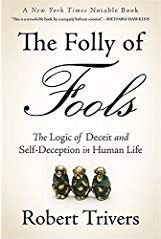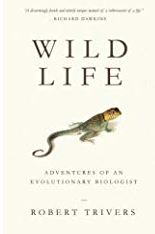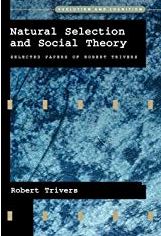|
TRANSLATE THIS ARTICLE
Integral World: Exploring Theories of Everything
An independent forum for a critical discussion of the integral philosophy of Ken Wilber
 David Christopher Lane, Ph.D.
Professor of Philosophy, Mt. San Antonio College Lecturer in Religious Studies, California State University, Long Beach Author of Exposing Cults: When the Skeptical Mind Confronts the Mystical (New York and London: Garland Publishers, 1994) and The Radhasoami Tradition: A Critical History of Guru Succession (New York and London: Garland Publishers, 1992). David Christopher Lane, Ph.D.
Professor of Philosophy, Mt. San Antonio College Lecturer in Religious Studies, California State University, Long Beach Author of Exposing Cults: When the Skeptical Mind Confronts the Mystical (New York and London: Garland Publishers, 1994) and The Radhasoami Tradition: A Critical History of Guru Succession (New York and London: Garland Publishers, 1992).If there's a singular topic Integral students need to be educated on it is evolutionary theory, given their frequent but uninformed use of the term "evolution". These short biographical chapters about evolutionary theorists have been written by different philosophy students of professor David Christopher Lane. (FV)
THE EVOLUTIONARY SCIENTISTS
Glimpses into the Life and Work of Great Thinkers in Evolutionary Biology
Coyne|
Crick|
Darwin|
Dawkins|
Diamond|
Dobzhansky|
Eldridge|
Gould|
Haldane|
Hamilton |
Lamarck|
Lovelock|
Mayr|
Mendel|
Monod|
Spencer|
Trivers |
Wallace |
Weismann |
Williams |
E.O. Wilson
Robert TriversYuanling TangRobert Trivers, a famous American evolutionary biologist with a Ph.D. in Biology, was born on February 19, 1943. He developed the theories of reciprocal altruism, parental investment, parental-offspring conflict, and facultative sex-ratio determination. He also has made contributions to discussing the intragenomic conflict and explaining the theory of self-deception. For his education, he went to Harvard University. For his first career, he got hired in a company for writing a social studies curriculum, and there was a section about animals, in which Trivers knew nothing about it. Thus, Trivers decided to study animals with a specialized teacher who him about the power of natural selection, which piqued his interest in biology. He then formally studied the biological sciences in graduate school at Harvard University and came up with his own interpretations of natural selection that later led the way of developing his social theories. Later, he became a faculty member at the University of California, Santa Cruz, and then he went to Rutgers University with the same position. Later, he also spent time studying animals and AIDs in Jamaica.  Robert Trivers Trivers' first work on reciprocal altruism was developed in 197l, and it describes a social, moral act between organisms. It happens when an individual with altruism helps another by sacrificing himself a little bit and hopes to receive an equal amount of the same, or more benefits back from the person who received the help. Charles Darwin's theory can explain the reason why animals with altruism would help blood-related family members, relating to kinship. Robert Trivers also explains the altruism that exists in friendship. He believes that our ancestors have experienced the benefits of reciprocal altruism due to his generosity with others who were not relatives. While doing this altruistic behavior, individuals also consider the fairness of the benefits. If the individuals received benefits from others, he would pay back the benefits due to his feelings of guilt. If the helper did not receive the same amount of benefits back, this action would be discontinued and eventually disappeared. Afterwards, Trivers' other work, the theory of theory of parental investment, suggests that the sex who is more selective when choosing a mate is the one that will put more investment (time, energy, and resources) to the offspring. This theory explains the sex differences in nature. Robert Trivers developed this theory from observing pigeons that were settling down in his bathroom window. When he was doing the observation, there were two couples taking place. The males were trying to keep their female pigeons away from another male. And then, during the day, when the female was taking care of their eggs, the male went out and wandered around to seduce other females. That is where the double standard is taking place. While the male was not allowing his female to get close with another male, he was trying to get in touch with other females. However, the other females tend to ignore the males. To better understand this phenomenon Robert read the Bateman" target="_blank">A.J. Bateman's groundbreaking paper, “Intra-sexual selection in Drosophila” (published in 1948), which was recommended by his professor Ernest Mayr, a famous evolutionist. He learned that the male and male competition and female choice both exist because the male tends to invest less during sexual reproduction than the female. Unlike the female who can only produce few eggs in her lifetime, the male has a higher chance of reproducing as many offspring as he wants because he can produce millions of sperm per ejaculation. Therefore, females tend to put more investment into the offspring and regard them as more precious. This action explains the reason why females are selective when choosing and preferring a mate, who can be a strong, reliable father to give protection to her during pregnancy and to their offspring. There is also a male choice, but it is less selective due to the amount of investment during the reproduction process. Also, its quality is worse than the female choice because males consider less when choosing a mate. Robert Trivers then developed the theory of facultative sex ratio determination in 1973 from the hypothesis proposed by him and Dan Willard. The hypothesis suggests that the female can adjust the sex ratio according to the maternal condition. Females who are living in a good environment or higher socioeconomic status tend to reproduce more male offspring compared with females who are living in adverse conditions. This phenomenon of the facultative sex ratio is due to two reasons: first, females who are living in a good condition are healthier. Additionally, the male fetus will have less risk of facing abortion because raising a son tends to cost less than a daughter. Likewise, in 1974, Robert Trivers came up with the theory of parent-offspring conflict to further explain the parent investment. This theory is a belief that the conflict arises when parents and offspring have different standards on optimal parental investment. Generally, the two parents expect to invest equally in each of their offspring since each offspring, haploid, is 50% related to each of them. However, since an offspring is 100% related itself and 50% related to siblings, the offspring expects to receive more parental investment (PI) than the parents desired to give. If the parents did put more investment into one of the offspring, the other offspring would have less chance to survive. In addition, in 1976, Robert Trivers proposed the theory of self-deception. Generally, the theory suggests that self-deception evolves when people get involved in interpersonal self-deception by avoiding any cues to show in the conscious mind. The self-deception has two advantages. One is for eliminating cognitive thinking when forming deception, and the other one is for reducing adverse outcomes when deception revealed. On the other hand, self-deception, self-enhancement also brings a social advantage by promoting more confidence than the person already has. Trivers explained that humans could be both deceived and deceiver by disassociating the conscious and unconscious of deception. In another contribution made by Robert Trivers, he discussed the concept of intragenomic conflict, where the phenotype effect of a gene is taking advantage of transmission to the detriment of another gene in a genome. From his "phenotype view," since every gene is an equal shareholder of reproducing an organism, they all can coincide interest together in an organism's behavior. Each gene has its disposition in a genome for tracking fitness, and there is no way of expressing the gene conflict and benefits of the conflict. Every scholar's work has controversies, including Robert Trivers'. In one of his research studies working with other experts, “Dance Reveals Symmetry Especially in Young Men”, it talks about why symmetric bodies of Jamaican men and women can symbolize the genetic sign, indicating how human dance is evolved from sexually enhanced courtship rituals. In this paper, Trivers found out that there was a problem with the data for measuring the symmetry, and he noticed that it was his co-author William Brown, who made some changes to the data and preselected the participants of the study. Because of this controversy, he wrote a book called The Anatomy of a Fraud in order to warn William Brown about his actions. At the end, Rutgers University admitted that there was substantial evidence to prove Trivers' doubt on William Brown, but it took many years to retract the paper. Moreover, Steven Pinker, a psychologist from Harvard University, thinks that Trivers' study about the dance and symmetry of the body lacks deep thinking. He believes that it would be cynical if Trivers become well-known by this controversial study, not his social theories. However, because of Robert Trivers' contributions in evolutionary biology, Pinker still believes that "Trivers is one of the most important thinkers in the history of the biological and social sciences" from the 20th century. Further Reading1. The Folly of Fools: The Logic of Deceit and Self-Deception in Human Life, Basic Books; Reprint edition (January 7, 2014) 2. Wild Life: Adventures of an Evolutionary Biologist 3. Natural Selection and Social Theory: Selected Papers of Robert Trivers, Plympton (November 20, 2015)
   MSAC Philosophy Group
The theory of evolution has a long history. However, it was not until Charles Darwin and Alfred Russel Wallace discovered that the wide variety of species we presently see were largely the result of natural selection did evolutionary studies have a solid, scientific basis. In the past one hundred and sixty years, a number of eminent biologists have contributed to our understanding of how complex life forms emerged from simpler, more rudimentary ones.
Comment Form is loading comments...
|